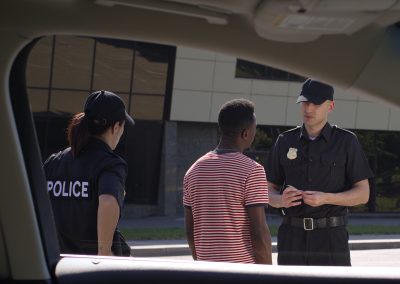[Publisher’s Note: Darrin Fulton wrote last week of his recent experience with losing a colleague and friend in the line of duty. It’s raw, painful, and important, because too few discuss these difficult feelings in public, which only adds to the pain. In response to that article, licensed family therapist and police officer Jeff Shannon offers these sage words.]
Grief is both a feeling and a process we experience when we lose someone or something we hold dear. The closer the person is to us and the manner in which they died play a role in the strength of our grief. If my father dies at 86 after six months battling a brain tumor I feel grief. But if he died suddenly in an auto accident at 50 my response will be more intense because of the unexpected way he left. There would be no closure, which would add to the pain.
Acute grief is like no other feeling or psychic pain. We often experience it is a death, not just that of the person we’ve lost, but our own death. We feel part of us has died, our hearts ripped from our chest. Dramatic language for sure, but this accurately portrays the experience of those who have grieved.
Helping Those in Need
How can we help our grieving brothers and sisters in blue?
This is an important question. It’s important because when LEOs experience grief, they still work and still have contact with their workmates. These co-workers are uniquely positioned, with little effort, to help move the grieving person through the process. Many officers say they don’t know if they should say anything at all to their grieving workmate. Or they don’t know what to say if they do decide to reach out.
Instead of staying away from the issue all together, we might simply say, “I’m sorry for your loss.” Such a statement tells the grieving person that you know they’re in pain. It also gives the person an opportunity to talk about it. Often all the grieving person wants is such an opportunity. Then, we let them talk about whatever he/she wants to talk about with regard to their loss.
Lt. Col Dave Grossman says, “Pain shared is pain divided, joy shared is joy multiplied.” With the statement, “I’m sorry for your loss,” what you’re really saying is that you’re available for your friend to divide his or her pain by giving some of it to you.
By listening closely to someone who is grieving, without trying to fix the problem (which is what we cops are hardwired to do), or telling them they’ll get over it soon, the grieving person unloads some of that pain. The unloading may take many forms, like sharing memories, regrets, tears or just sitting quietly. As the listener, when you experience the suffering of the person grieving, you know you’ve done well. The suffering you experience may be a tightening in the chest, a feeling of sadness, welling in the eyes, and so on. In short, you grieve with them.
Following is some good advice a LEO can give their fellow officer in times of loss.
Feel your feelings. That’s not as straightforward or easy as it sounds. The feelings we’re talking about here can be acutely painful. Nothing pleasant about them. Many of us start to feel our feelings and then decide to move away from them. Makes sense in a way.
And, how do we move away from our feelings? We club them into submission by engaging in numbing activities. Think booze, porn, zoning out on social media, television—and the list goes on. Importantly, these numbing activities may be needed. Don’t beat yourself up if you do them. Just keep in mind, as the famous psychoanalyst Carl Jung says, “That which you resist, persists.” In other words, those uncomfortable, seemingly unbearable feels of sadness and loss aren’t going anywhere. Pay now, or pay later.
Don’t isolate yourself. The first impulse for many of us in this field is to remove ourselves from the herd, find some shrubbery, and lick our wounds in private when injured. We help others: We don’t need help.
The emotionally intelligent LEO, however, learns to turn to one’s community, family, faith, and friends in such times of grief. No one expects you to be the life of the party, but healing is quickened in the presence of our loved ones.
Work towards acceptance of a “new normal.” Avoid suggesting to your partner that there will ever be a time they’ll be over it. Why? Because they never will be completely over it. One of the unique characteristics of grief is the experience that a part of you has died along with the person for whom we grieve. It’s not coming back. What “normal” looks like will be forever changed. That doesn’t mean the new normal will be bad. The acute pain and suffering will end and that’s important to remember and share with your partner.
Conclusion
Grief is like a curve ball to the face. You don’t see it and when it hits it hurts like hell. After a time, however, we pick ourselves up off the dirt, square ourselves back to the plate, and look for something to knock out of the park. We do that not just for ourselves, but for the one we lost. They would expect and want nothing less from us.










0 Comments